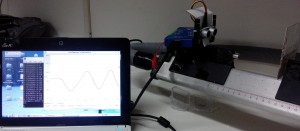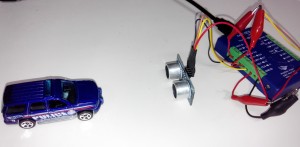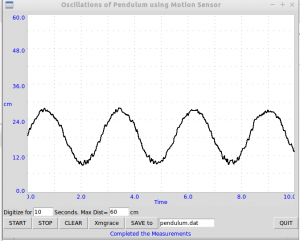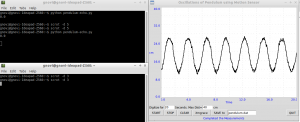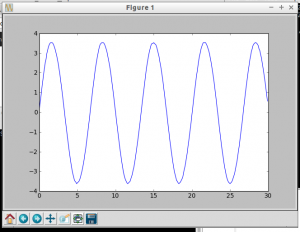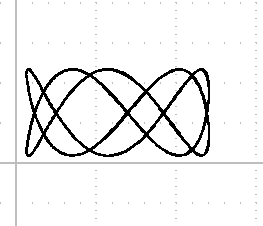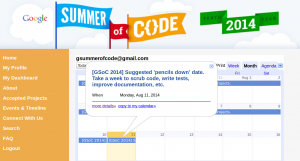Coming Soon
Category Archives: GSoC-2014
Science Hack Day India 2016!
Announcing Science Hack Day India – 2016
We are excited to announce our 1st Science Hack Day India!
The event will take place on 22-23 October 2016 at Belgaum, a small city surrounded by some splendid nature, in Karnataka State of India.
We welcome you all to join us at SHD India. Let’s collaborate, learn, hack, build cool stuff and have lots of fun.
Registration is now open at eventbrite.
For more announcements follow us on…
What is Science Hack Day?
Science Hack Day is a two-day event where anyone excited about making weird, silly or serious things with science comes together in the same physical space to see what they can prototype within 30 consecutive hours. Designers, developers, scientists and anyone who is excited about making things with science are welcome to attend – no experience in science or hacking is necessary, just an insatiable curiosity.
The mission of Science Hack Day is to get excited and make things with science! People organically form multidisciplinary teams over the course of a weekend: particle physicists team up with designers, marketers join forces with open source rocket scientists, writers collaborate with molecular biologists, and developers partner with school kids. By collaborating on focused tasks during this short period, small groups of hackers are capable of producing remarkable results.
Venue:
We have an amazing place called Sankalp Bhumi Farm Resort for this event. It was once an abandoned quarry, today natures glory restored. The resort resembles an enchanting oasis, with a thick set of trees, sprawling lawns, and a large lagoon surrounded by picturesque expansive rock walls as backdrop.
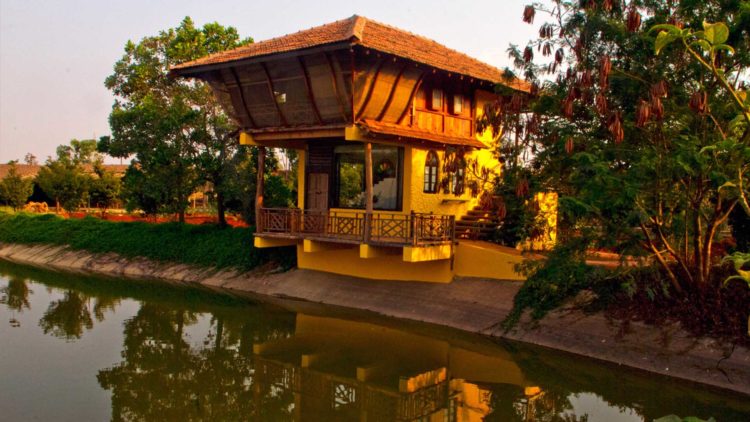
Tentative Program
Day 1:
09:00 Arrive, check-in, eat breakfast (provided)
10:00 Welcome, introductions
10:30 Hacking begins!
10:45 Lightning talks
12:00 Lunch (provided)
13:00 Hacking continues
18:00 Door closes
Day 2:
09:00 Doors open, breakfast (provided)
12:00 Lunch (provided)
13:30 Hacking stops
14:00 Hack demos begin! (Typically 2-3 minutes per demo)
16:00 Winning teams announced & given awards/medals
Science Workshops
Along with hacking we also have Science Workshops for kids. Workshops will run parallel to the SHD. We will be making amazing science toys and solar lanterns 🙂
Organisers:
FOSSASIA India Team.
Praveen Patil, Hong Phuc Dang, Rahul Khanolkar
Google Code-In 2014 with FOSSASIA
 FOSSASIA, best known for their Open Technology Event in Asia, is a non-profit organization that supports Free and Open Source Projects that range from Open Source software, to design, graphics and open hardware in Asia and around the world. The aim of FOSSASIA is to develop and adapt new technologies for social change.
FOSSASIA, best known for their Open Technology Event in Asia, is a non-profit organization that supports Free and Open Source Projects that range from Open Source software, to design, graphics and open hardware in Asia and around the world. The aim of FOSSASIA is to develop and adapt new technologies for social change.
Attending FOSSASIA back in Feb-2014 was a life changing experience for me. It was full of fun, joy and a lot of knowledge filled learning experiences. I could meet some of the amazing FOSS contributors, learn lot many things and got inspiration to do something positive and contribute back to the society.
With the encouragement, support and guidance from my mentors Mario Behling and Hong Phuc, I could successfully complete my GSoC-14 Project on ExpEYES – An Open Source Pocket Science Lab. This was an inspiring moment that motivated me to keep learning and contribute to create better learning resources and opportunities for students.
 2014 being FOSSASIA’s first year of participating in Google Code-In as a mentoring organization, brought yet another excellent learning opportunity for me and my students. FOSSASIA’s admins Hong Phuc and Mario Behling encouraged me to take part in GCI as a mentor and help Pre-University students to take their first step in the world of FOSS, learn and make tiny little contributions.
2014 being FOSSASIA’s first year of participating in Google Code-In as a mentoring organization, brought yet another excellent learning opportunity for me and my students. FOSSASIA’s admins Hong Phuc and Mario Behling encouraged me to take part in GCI as a mentor and help Pre-University students to take their first step in the world of FOSS, learn and make tiny little contributions.
I started interacting with the students to spread awareness about GCI. I gave presentations in the classrooms and also tried to communicate with other students through face book. On December 1, 2014 when GCI contest started, most of my tasks were claimed by students from outside India and there was hardly any response from students of my own institute or neighboring pre-university colleges. Very few students participated and they were finding it difficult to complete even beginner level tasks. We decided to explore this situation, find the reasons and do something to motivate the students.
Ours is a small city in South India and we found that the main reason for students not able to participate was lack of IT infrastructure in schools. Less than 1% of high school students have access to computers and Internet. They get a chance to learn coding only in 11th standard, that too if they opt for computer science. In rural India the situation is even worst. I realized that students are willing to participate but are unable to do so because of absolute lack of basic computer skills. Some of those who could participate claimed very simple tasks involving only documentation and none of them claimed tasks with coding.
With the suggestions and guidance from Mario and Hong Phuc, we organized a series of workshops for students on every Saturday, Sunday and on holidays at my house. The first workshop in the series was on “Introduction to Free and Open Source Software” and “Google Code-In”. More than 100 students turned out for the session. We also had a session on installing Gnu/Linux, Libre Office and softwares like Gimp, Inkscape etc… I was happy to see students engaged with FOSS learning till late in the evening even though their final exams were approaching.
The next few workshops/sessions were focused on using FOSS for documentation, basic Image processing, designing, basics of Blogging and Python Programming language. These interactive sessions were of great help in developing confidence and motivating students to participate in GCI. More than 70 students registered for GCI. Many expressed that it was the first time that they could have such hands on experience on computers and that they enjoyed learning and creating with FOSS.
Many of our friends encouraged and helped us by providing laptops, Internet dongles, Projector and most importantly their valuable time during workshops. My best friend (My better half … 🙂 ) Minal Patil took care of snacks for students and also helped in conducting workshops. We even had a GCI session on 25th of December and celebrated Christmas with FOSSASIA and GCI in a different and meaningful way… 🙂
It was amazing to see the happiness on the face of students, who never had any hands-on experience with computer, complete their first GCI task. Many students could complete beginner level tasks related to documentation and outreach. Some could create their blogs and write about themselves and their experience about participating GCI. Few students could also contribute to our Open Source Project ExpEYES – Pocket Science Lab. Some students also worked on an interesting project, initiated by Mario Behling , to create a small website and add details about FOSSASIA’s mentors and students. The project was intended to provide students an opportunity to experience open source development culture. It was a big success with a great website created together by students and mentors.
It was great fun to learning new things everyday along with the students.
The most fulfilling moment came when results were announced on the official Google Open Source Blog.
- My organization FOSSASIA is at No 1, with 587 tasks completed. A total of 174 students completed at least one task with us.
- Our School Govindram Seksaria Science P.U. College, Belgaum (GSS) in India is at No 2, among 397 schools from 53 countries with 49 students completing the tasks.
My Pre-university College management members were happy to know about our success in GCI and encouraged me with felicitation. They have even displayed a banner in the college campus mentioning about FOSSASIA, GCI and success of our student participants. They expressed their wish to have an MOU with FOSSASIA and continue to take such steps to help students from our region to learn to code and contribute to FOSS. They also offered all the infrastructural support.
I am also happy to share that our Grand Prize winners Namanyay Goel and Samarjeet Singh also contributed to Project ExpEYES along with other projects under FOSSASIA. Many other students contributed to the ExpEYES project by writing python code for Unit Conversion GUI’s and by writing documentation for science experiments.
Participating in GCI with FOSSASIA as a mentor was a great learning experience and I would like to thank Hong Phuc and Mario Behling for this wonderful opportunity. You have inspired me to take up this task of helping kids from this region to learn to code, as a lifelong mission. Thanks a billion to all the students who participated in the contest and wish them a great future ahead.
I must also thank Stephanie Taylor and Co. at the Google OSPO, for organizing this wonderful contest and for creating better learning opportunities for students all over the world.
By Praveen Patil, FOSSASIA mentor
Random Pics : Google Code-In with FOSSASIA
GSoC Weekly Report 13
(From Monday 11th August to 17th August 2014)
This week I conducted experimental trials for all the experiments using python code written for Real-Time plotting and also code for Off-Line mode. Did modifications in the programs wherever necessary and finalized the code for experiments. Wrote python code for Mechanics and Sound GUI. Worked on documents.
I am also working on packaging everything so that the plug-ins can be separately installed on a machine where ExpEYES is pre-installed. Need few days for this work. I will continue this after the final evaluation report is submitted.
To Do Next Week……
- Submission of Final Evaluation
- Complete and upload Experiments documents to the blog site.
- Take trials with experimental set-up and upload photographs and videos.
- Create a package that can be installed on a machine where ExpEYES is pre-installed.
Since most of the apparatus for all experiments is home-made, I will be uploading the procedure with photographs for creating these devices. I will also add documents with relevant theory for each of the experiment to the blog site.
It had been a great journey with new learning experiences. Thanks a million to my mentors Mario Behling, Hong Phuc Dang & Hau Dang at FOSSASIA and Ajith Sir. Even though the coding season ends tomorrow, I am feeling like its a beginning for me.
There is a lot to be done…. and I will be continuing with the work to make this dream a reality.. a dream of providing every student with the most affordable pocket science laboratory.
I have thought of many new experiments on which I will be working for next couple of days. Also thinking of having a separate website for this work…its possible now…thanks to funding from Google.
Saturday, 16th August 2014
Today since morning I am on Python code for Sound and waves GUI. Its almost ready… 🙂
Tried various experiments with the new python programs written for plotting real-time graphs to test for errors and did necessary corrections. Also gave finishing touch to programs and added to Git repo. Work of writing documents for experimental procedures is taking positive shape. After the finishing the required coding part I will focus more on the documentation part.
Monday 18th August is the firm ‘pencils down’ date. Therefor I am working on the programs to give them the final form.
Friday, 15th August 2014
Continued working on python codes for various experiments….. Conducted trials with python code for plotting real-time graphs.
Did various experiments on linear air track to study concepts like momentum, collision, motion on incline etc.
Used toy cars for motion experiments. this will be a low cost solution for experiments in mechanics where air track is not available…:)
In an experiment with pendulum using motion sensor we could get the desired result. Now pendulum experiments can be done using three different sensors
- light sensor – Photo-gate
- motion sensor – srf05 ultrasonic module
- DC motor
These are screen shots of motion of pendulum with srf05 module
Thursday, 14th August 2014
Wednesday, 13th August 2014
Tuesday, 12th August 2014
Today I could complete documentation of experiments with linear air track. Also gave finishing touch to python codes by adding gettext module for internationalization.
The gettext module provides internationalization (I18N) and localization (L10N) services for your Python modules and applications. It supports both the GNU gettext message catalog API and a higher level, class-based API that may be more appropriate for Python files. It allows you to write your module and application messages in one natural language, and provide a catalog of translated messages for running under different natural languages.
Thanks to Georges Khaznadar who helped us with internationalization. The following code is added to all the programs.
”’
import gettext
gettext.bindtextdomain(“expeyes”)
gettext.textdomain(‘expeyes’)
_ = gettext.gettext
”’
Now need to work on pages for individual experiments and also the Common GUI for sound and mechanics.
Monday, 11th August 2014
Today is the [GSoC 2014] Suggested ‘pencils down’ date, therefore this week I will be working on scrubbing the code, improving documentation and completing integrated GUIs for mechanics and sound experiments. I will also complete separate pages for all the experiments on the blog.
The Firm ‘pencils down’ date is ob 18th August 2014. therefore before Sunday 17th August I will try and give finishing touch to everything.
Worked on some python programs and changes committed to Github. Tried experiments on linear air track with new code developed for plotting real-time graphs. things have become amazingly simple and many concepts in mechanics can be easily demonstrated with our set-up.



















